In the My Life With Food Allergy Parent Survey Report from the Asthma and Allergy Foundation of America (AAFA), we highlighted the significant social, emotional, and financial impact food allergies can have on parents. In the section, “Spotlight: Transition to Adulthood,” we looked at the impact food allergies can have on both parents and teens/young adults. Here are some of our findings. (Kids With Food Allergies is the food allergy division of AAFA.)
Even if a child with a food allergy has had it all their life, each growth stage comes with its own concerns and challenges. In the “Spotlight: Transition to Adulthood,” we found that the period when a child moves into adulthood comes with a greater risk when food allergies are involved. It also causes a lot of anxiety for their parents.
Why the increased risk? Teens and young adults are at higher risk of dying from a severe allergic reaction (anaphylaxis) to a food. Teens and young adults with food allergies also take more risks. This often includes eating unsafe foods, not carrying epinephrine, or waiting too long to use it for a reaction.
To better understand the burden of food allergy on teens/young adults and their families, we reviewed responses from parents of children in this age group (13 to 23). We then compared their responses to the responses from our teen/young adult patient survey.
In every area of life, the parents reported a more negative impact of food allergies than the youths themselves. About 59% of parents said the impact of their child’s food allergy on their own mental health was high. But only 27% of youths felt the same.
As for social impact, 56% of parents said the impact of their child’s food allergy on their own social life was high, compared to 31% of the teens/young adults.
(In the charts below “T/YA” stands for “teens/young adults” and “FA” stands for “food allergy.”)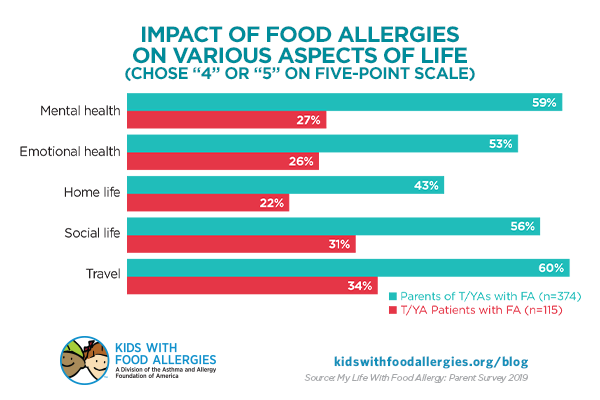
Parents of teens/young adults with food allergies reported more frequent feelings of fear, worry, and unease.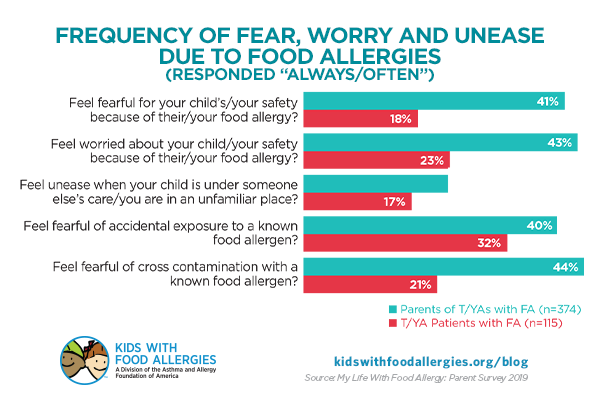
When asked how often parents think about their child’s food allergy, 71% said it’s always in the back of their minds. Only 25% of teens/young adults with food allergies said the same thing.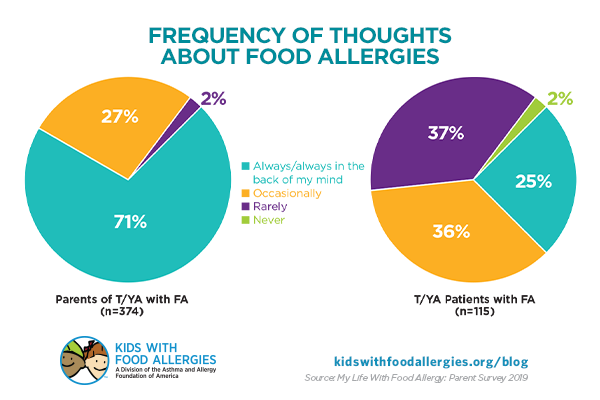
When asked about their thoughts on food allergies, parents felt more fear and anxiety than youths with food allergies.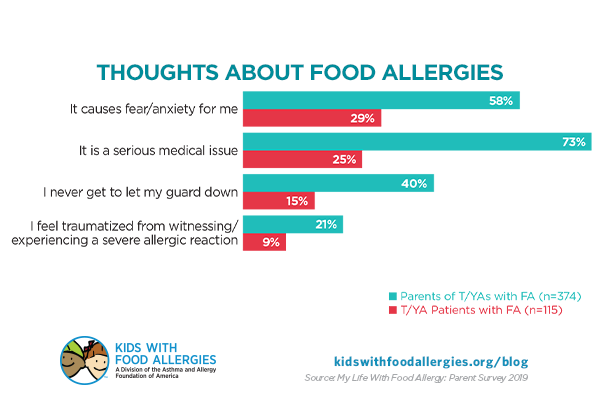
And parents know they stress more about food allergies than their children with food allergies do. Teens/young adults with food allergies also believe their food allergies cause greater fear and anxiety for their family than themselves.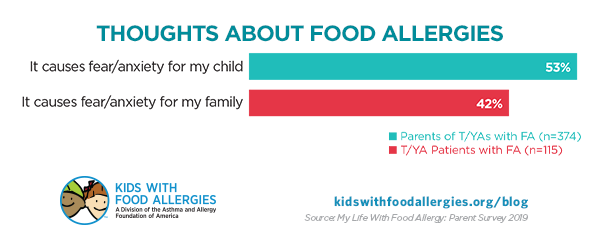
Despite the impacts of food allergy on parents’ anxiety and mental health, parents say they are “very confident” in many parts of daily management. But they aren’t very comfortable asking for help with their child’s food allergy when needed. Across the board, parents reported higher levels of confidence than teens/young adults with food allergies for all activities covered in the survey.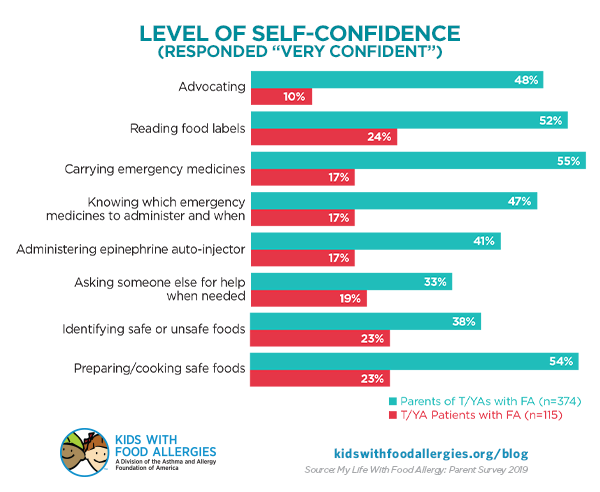
Read more about the impact of food allergy in AAFA's My Life With Food Allergy Parent Survey Report.

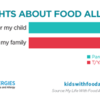
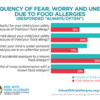
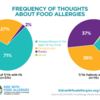
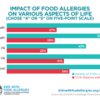
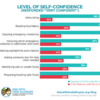
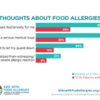
Comments (0)